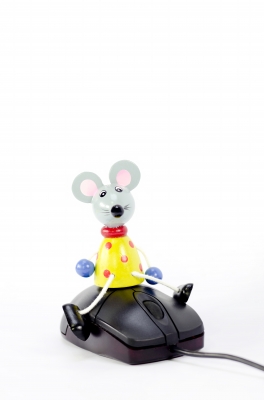Mice are cuddly, sociable, and also quite clever animals. This is why there are some people who actually keep mice as pets, and others not only keep them but breed certain varieties of mice too. But these small rodents can also pass on disease and destroy belongings. Hence, many home and business owners prefer that their places stay mice-free.
With so many people having problems with mice infestations, many experts have presented several ways to get rid of these pesky critters. Some methods are brutal, while others are supposedly more humane. For example, there are those who suggest the use of poisonous baits or killer traps. Many, however, are quite squeamish and wish for more humane methods. An example is using traps where a mouse can be freed after trapping, which may not work very well for some. Others recommend that homeowners bring in natural predators, like cats or barn owls. But if these animals are fed well, will they go hunting for mice? There really are so many suggestions regarding how to get rid of mice; and choosing what technique to use is confusing.
If you are having mice or rodent problems, the best way to deal with this is to rodent-proof your home against such pests. This helps to ensure that your home will not be infested with mice. In case you’re thinking about killing rodents, be aware that this is part of a vicious cycle that will only keep them away for a short time. The more creatures you kill, the more food there will be for other mice, the more they will reproduce, and, in time, the more mice there will be.
Mouse-Proofing Home
1. Storing Food and Collecting Garbage
Always keep food in properly sealed containers. If possible, store food items in the refrigerator. As for garbage, keep trash bins far from the main house as rodents are attracted to food scraps.
2. Cleaning Up after Feeding Pets
Pets are usually messy eaters. So, make sure to clean up after them so that there won’t be scraps lying around that will attract mice. After companion animals eat, you have to clean and disinfect the area where food may have spilled. Disinfecting will remove the scent of food that is a magnet for mice and other types of pests.
3. Sealing Cracks
Micecan easily get inside your home through very small spaces. Hence, it’s important to seal or caulk all cracks that lead inside your home. For bigger cracks or holes, fill these first with steel wool before caulking.
4. Utilizing Certain Odors
Mice and other rodents do not like certain smells. For example, they stay away from homes that smell of kitty litter reeking with cat urine because they associate this with cats, and cats are their natural predators. So, you can put a kitty litter box near doors or windows. You can use the urine of other animals that are considered as a mouse’s natural predator. However, this could leave your home and yard smelling a bit off-putting. One other alternative is peppermint-scented items. Use peppermint tea bags or cotton balls soaked with peppermint essential oil. Place these near entry points or around your house to keep mice away.
5. Keeping Property and Home Clean
Mice and rodents are attracted to filth and clutter. Therefore, keeping your place clean is a great preventive measure against mice or rodent infestations. You should also store firewood, junk and other unused items far from your main house. Make sure that plants and landscape are well-maintained too as dense thickets are ideal hiding places for rodents.
Citations:
- Photo courtesy of dan at FreeDigitalPhotos.net.
The article is by Claire Pritchard. She writes for several pest control companies, including Admiral Pest in Carson. This company can get rid of many types of pests, including rodents, termites, and many other irksome bugs.

